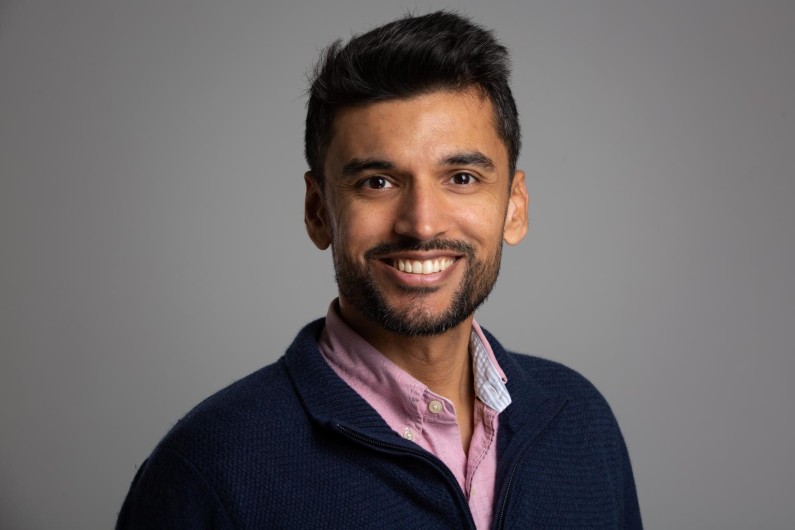Manas Upadhyay receives an award from the French Society for Metallurgy and Materials

Additive manufacturing, also known as 3D-printing, has been gaining momentum in the last few years to build or repair industrial pieces for a large range of applications, from aerospace to healthcare. It involves reading a 3D computer-designed file and building it in a layer-by-layer manner by locally melting a feedstock using a moving heat-source such as a laser. Although the process is flexible, it is difficult to achieve the desired mechanical properties because of the high sensitivity to different parameters. In addition, trial-and-error methods currently used in industry produce a lot of waste. Manas Upadhyay's research aims to overcome these problems in order to expand the use of metal additive manufacturing. The French Society for Metallurgy and Materials has just awarded the Jean and André Rist Medal to this young scientist from the Solid Mechanics Laboratory (LMS*).
Manas Upadhyay completed his Bachelor of Engineering degree from the University of Mumbai (India) and his PhD in Mechanical Engineering from the Georgia Institute of Technology (USA). He became interested in additive manufacturing during his post-doctoral research at the Paul Scherrer Institute (Switzerland) and, in particular, on understanding what happens to a material's microstructure during additive manufacturing. During this process, the liquid metal rapidly solidifies within a few milliseconds after its deposition. “Following solidification, as the building continues, the material is subjected to multiple thermal (heating and cooling) cycles in the solid-state, called SSTC, with varying temperature rates and amplitudes”, he explains. “Until recently, scientists had mainly focused on understanding microstructure formation during solidification. But a lot of mechanisms influencing the microstructure of the material can happen during SSTC such as local dilatation and contraction, so much that the mechanical properties you obtain at the end are significantly different.”
Synergy between modeling, simulations and experiments
Microstructures of additively manufactured materials are more complex than in conventional ones. To understand their formation, their evolution during SSTC, and how they relate to mechanical properties, research is needed from theoretical, computer simulation and experimental sides. Only after this fundamental work has been carried out can solutions to applied problems be developed. Manas Upadhyay has been implementing this long-term vision since his arrival at Ecole Polytechnique in 2019. Thanks to a Starting Grant from the European Research Council for his project GAMMA, he has set up the MoSES group (Modeling Simulation and Experiment Synergy).
Currently composed of three PhD students, Nikhil Mohanan, Kouider Abdellah Abdesselam, Gabriel Dante Lima Chaves, and two post-doctoral researchers, Steve Gaudez and Juan Guillermo Santos Macias, the team has already demonstrated that SSTC during additive manufacturing can indeed induce microstructure evolution and performed experiments with a portable miniature laser metal deposition machine suitable for X-ray studies at large synchrotron facilities. From a computational point of view, finite element methods help them simulate and interpret what is happening during those experiments to gain fundamental insights about the processes. New findings on this subject are likely to be published soon.
Steve Gaudez, from the MoSES group, has also been awarded by the French Society for Metallurgy and Materials. He receives the Bodycote prize for his work completed during his PhD thesis at Université de Lorraine.
*LMS: a joint research unit CNRS, École Polytechnique - Institut Polytechnique de Paris
 Support l'X
Support l'X